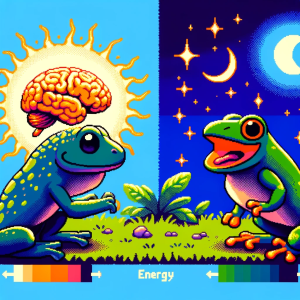
Coffee and Your Brain: Could Your Daily Cup Protect Against Alzheimer’s?
Imagine a world where your daily cup of coffee does more than just wake you up in the morning. What if it could slow down the cognitive decline associated with aging, potentially protecting you from diseases like Alzheimer’s? This isn’t a fantasy—it’s grounded in real research. A recent study from Australia suggests that coffee might do more than fuel your day; it could also safeguard your brain.
In this post, we’ll explore the findings of a study that links regular coffee consumption with slower cognitive decline and reduced risk of Alzheimer’s disease (AD). We’ll also dive into what makes coffee so special and how it could become a key player in the fight against neurodegenerative diseases.
The Morning Ritual That Could Change Your Future
For many, the day doesn’t truly begin until after that first cup of coffee. Whether it’s a hot espresso or a frothy cappuccino, coffee is a staple in daily routines worldwide. But beyond its energizing effects, could coffee also be working behind the scenes to protect your brain?
Researchers from the Australian Imaging, Biomarkers, and Lifestyle (AIBL) study took a deep dive into this question. Over a 10-year period, they tracked the cognitive health of 227 older adults who were free from Alzheimer’s at the start of the study. The results? Those who drank more coffee showed slower cognitive decline, particularly in areas like executive function and attention.
In simple terms, executive function is your brain’s ability to manage tasks, make decisions, and control impulses—all essential for day-to-day life. Slowing the decline in this area means maintaining independence and mental sharpness longer into old age.
A Long-Term Study with Stunning Results
The AIBL study wasn’t just a quick snapshot of coffee drinkers; it spanned over 10 years, providing researchers with robust, long-term data. One of the most intriguing findings was that higher coffee consumption was linked with a reduced likelihood of progressing to mild cognitive impairment or Alzheimer’s disease. Participants who drank more coffee were less likely to show the first signs of Alzheimer’s.
But why does coffee have this effect? The study suggests it might have something to do with Aβ-amyloid, a protein that accumulates in the brains of Alzheimer’s patients. The buildup of Aβ-amyloid is toxic to brain cells and is a hallmark of the disease. The good news? People who consumed more coffee showed slower accumulation of this harmful protein.
What’s in Your Cup?
So, what is it about coffee that might protect your brain? Coffee contains a complex mix of bioactive compounds like caffeine, chlorogenic acid, and polyphenols. These compounds have antioxidant and anti-inflammatory properties, which could help protect brain cells from damage over time.
It’s not just the caffeine either—studies on decaffeinated coffee have shown similar protective effects. This points to other compounds in coffee as potential heroes in the fight against cognitive decline. Interestingly, researchers have found that some of these compounds might reduce the toxic buildup of Aβ-amyloid and prevent it from causing damage to brain cells.
Imagine coffee as a tiny shield for your brain, deflecting the harmful proteins and inflammation that contribute to diseases like Alzheimer’s. It’s a powerful image—and it’s becoming clearer with every new study.
Slowing Down Cognitive Decline: What It Means for You
Let’s say you enjoy a couple of cups of coffee a day. According to this study, that habit could slow down cognitive decline by up to 8% over 18 months. While this might not seem like a massive difference in the short term, the long-term implications are profound. Maintaining even a few more years of sharp mental function could mean staying independent, managing your daily tasks, and living life on your terms for longer.
Moreover, coffee might reduce your risk of transitioning from being cognitively normal to having mild cognitive impairment or Alzheimer’s. It’s like adding a few extra years to your mental “youth,” a priceless advantage as we age.
Coffee as a Lifestyle Choice
As researchers continue to study coffee’s protective effects, some are starting to wonder: Could coffee become a part of our broader strategy for preventing Alzheimer’s? We already know that lifestyle choices like diet and exercise play critical roles in brain health. Coffee, with its unique blend of protective compounds, could join this roster as a modifiable lifestyle factor that helps delay the onset of Alzheimer’s.
Of course, more research is needed to confirm these findings, but the results so far are promising. For now, it’s safe to say that coffee, when consumed in moderation, is part of a brain-healthy lifestyle.
The Bigger Picture
While coffee is the hero of this story, it’s essential to consider the broader context. The AIBL study is part of a growing body of research that highlights the role of lifestyle factors in brain health. Alzheimer’s and other forms of cognitive decline are complex diseases with many contributing factors—genetics, diet, exercise, and more.
What this study shows is that we may have more control over our brain health than we think. Simple, everyday choices like drinking coffee could have long-lasting effects on our cognitive abilities. And that’s a powerful realization.
Join the Conversation
What do you think about the idea of coffee as a brain protector? Does this study change how you view your daily cup of joe? Let’s continue the conversation in the comments below:
- If coffee could slow cognitive decline, how might this impact your daily routine or habits?
- What other lifestyle changes would you consider making to protect your brain health?
We’d love to hear your thoughts!
Transform Your Science World:
Get the latest and most inspiring scientific updates with ‘This Week in Science’! Perfect for educators and science enthusiasts, our free weekly newsletter delivers groundbreaking research and stories that ignite your passion for learning and teaching. Sign up today and transform your approach to science. If you liked this blog, please share it! Your referrals help This Week in Science reach new readers.



